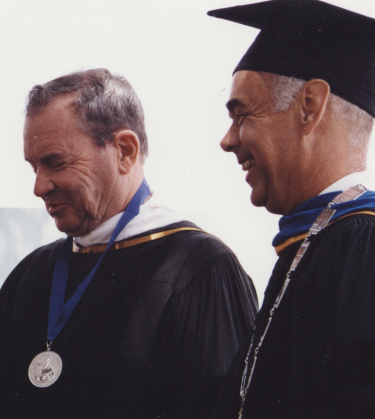- Home
-
About
 Fidelity & Excellence
Fidelity & ExcellenceThomas Aquinas College is unique among American colleges and universities, offering a faithfully Catholic education comprised entirely of the Great Books and classroom discussions.
-
A Liberating Education
 Truth Matters
Truth MattersTruth, and nothing less, sets men free; and because truth is both natural and supernatural, the College’s curriculum aims at both natural and divine wisdom.
-
A Catholic Life
 Under the Light of Faith
Under the Light of FaithThe intellectual tradition and moral teachings of the Catholic Church infuse the whole life of Thomas Aquinas College, illuminating the curriculum and the community alike.
-
Admission & Aid
 Is TAC Right for You?
Is TAC Right for You?Do you enjoy grappling with complex questions? Are you willing to engage in discussions about difficult concepts, with the truth as your ultimate goal?
-
Students & Parents
 Mind, Body & Spirit
Mind, Body & SpiritThere is always something to do at TAC — something worthwhile, something fulfilling, and something geared toward ever-greater spiritual and intellectual growth.
-
Alumni & Careers
 What Can You Do with a Liberal Education?
What Can You Do with a Liberal Education?Nothing speaks more to the versatility of the College’s academic program than the good that our alumni are doing throughout the Church and the world.
- Search
- Giving
The Hon. William P. Clark, R.I.P.

In the early hours of August 10, 2013, California and the United States lost a distinguished statesman, and Thomas Aquinas College lost a dear friend. Following a protracted battle with Parkinson’s disease, the Hon. William P. Clark passed away at his beloved ranch in Shandon, Calif.
“The nation mourns the loss of Judge Clark and, in a particular way, so does Thomas Aquinas College,” says President Michael F. McLean. “His friendship with the College stretches back 40 years, almost to the time of our founding. Throughout the decades he was unfailingly generous with his time, with his advice, and with his financial support. We remember fondly his serving as our Commencement Speaker in 1997, when we presented him with the College’s highest honor, the Saint Thomas Aquinas Medallion. We keep him and his family in our prayers, and ask that friends of the College everywhere do the same.”
Judge Clark’s career in public life began with his involvement in Ronald Reagan’s gubernatorial campaign in 1966. Three years later, Gov. Reagan appointed him to the Superior Court of California, and in 1973 to the State Supreme Court. When Gov. Reagan became President of the United States in 1981, he brought his friend and confidant to Washington with him, naming Judge Clark first as Deputy Secretary of State and then National Security Adviser. During that time, Judge Clark is widely credited with helping to shape the foreign policy that brought about the demise of the Soviet Union and the end of the Cold War. In 1983, President Reagan appointed him to the Cabinet-level position of Secretary of the Interior, an office he held until 1985, when he retired to private practice back in California.
A faithful Catholic, Judge Clark “was dedicated to the rights of the individual, from the unborn to the incarcerated, to the sick and the dying, to the under-represented,” notes his family obituary. In 2010, he received the Church’s highest honor for laymen, the Cross Pro Ecclesia et Pontifice. Yet it was not from such achievements that he drew satisfaction. Judge Clark’s “greatest solace in life,” his obituary observes, “was his faith in God, his wife Joan, his children, grandchildren, great-grandson, and the family ranch in Shandon.”
Throughout the years, Judge Clark was also a loyal champion of Thomas Aquinas College, which he called “the College of colleges” and “an extraordinary institution that is virtually unparalleled in Catholic higher education.” He often reached out to friends and colleagues, encouraging them to support the College financially. In one such letter, he credited the College with “providing young people with both the intellectual and the moral formation essential for citizens of our democratic republic.”
Judge and Mrs. Clark were themselves generous benefactors of the College, whose gifts include the 17th century nave ceiling of St. Bernardine of Siena Library; the hand-rung bells in Our Lady of the Most Holy Trinity Chapel, rescued from a shuttered church in Chicago; and the graceful statue of Our Lady of New York, a replica of the original in St. Patrick’s Cathedral, which stands in St. Thomas Plaza. In 2001, Judge Clark graciously agreed to serve as the co-chairman of the College’s Comprehensive Campaign, which raised $75 million.
“Judge Clark has left a profound legacy, both in the world, and here on our campus, where reminders of his kindness, his faith, and his love of beauty are everywhere,” says Dr. McLean. “May he rest in peace.”

